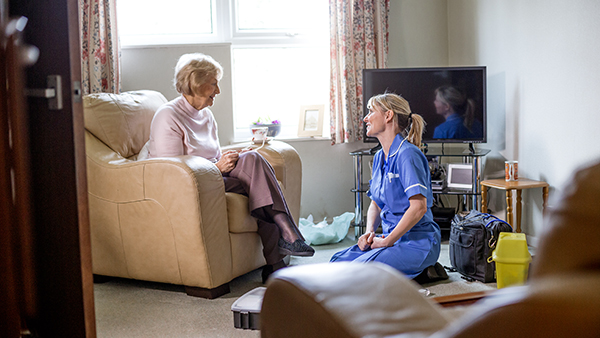The government wants to create a culture of philanthropic giving in the UK akin to the US. Peter Wanless FRSA welcomes the move but says we must not forget to show appreciation for the amount given by ordinary people.
Bill Gates' recent commitment of a further £1 billion to a programme of immunisation for children in developing countries is thoroughly admirable. Immunisation is a cause that he and his wife have supported for a long time, and their generosity has saved the lives of millions of children.
America has a strong culture of philanthropy. Once someone becomes seriously wealthy - we are talking at least $30 million here - it is expected that they will seek out a good cause to which to put their money and their name. The tax system is set up to reward giving, and there are organisations that broker deals between charities and the super rich. Many set up foundations that are usually overseen by spouses and offspring.
Motivations vary, but usually philanthropists select good causes that interest them and that resonate with earlier pre-wealth experiences. Some talk about being personally lucky and blessed and wanting to give something back. In return, they get genuine, widespread personal acknowledgement and recognition, as well as a warm glow from knowing that they have made a real difference.
The UK government is trying to foster a similar sort of culture here, although interestingly they are aiming it at the well heeled as well as the super rich. The largely Lottery-funded Catalyst Scheme, unveiled recently by Culture Secretary Jeremy Hunt aims to empower organisations to attract funding.
It is not that philanthropy is entirely new to us: Henry Tate, Charles Clore, the Sainsbury family, and, more recently, Sir Terence Conran have all established themselves as respected philanthropists with clear ideas about where they wish to make an impact. But high level giving is not as widespread as it is in the US and does not seem to come naturally to the UK’s culture. This is partly to do with attitude: the British seem to view this sort of thing as bordering on ostentatious and are a bit suspicious about donors’ motives. We find it hard genuinely to applaud and recognise the generosity of an individual without anyone speculating about self-interest or promotion.
It is not that we are innately miserly; we can, at time, display a very strong culture of giving. Our response to world disasters is immediate and open hearted and the British people give millions to fundraising campaigns like Comic Relief and Children in Need. And despite the economic climate, more people are making regular charitable donations: the number of direct debits to charities is up by 7.8% this year compared to 2010 with the average gift jumping nearly £1 to £12.86.
Then there are school fetes, church jumble sales, sponsoring colleagues to run marathons and so on. It is a fair bet that the generosity of most people in the UK is proportionate to that of the Billionaire American philanthropist. According to the World Giving Index, Britain is in the top ten of the most generous nations for giving to charity.
There is another very significant way that most of us give without always realising: the National Lottery. In the UK, 70% of people play the Lottery and over a quarter of the money goes to good causes. As the focus of play is the jackpot, the amount we raise together is often overlooked, but it is huge. To give you a comparison, Comic Relief had its best ever year in 2010 and raised £102million; the National Lottery raises more than this every month. It is impossible to overstate the contribution that the Lottery makes to our charities, community groups, arts, sports and heritage.
So as well as finding ways to nurture a culture of philanthropy in the UK, we also need to celebrate the contribution of the man and woman in the street; whether this is through playing the National Lottery or making charitable donations, people on average incomes put many of the rich to shame. Among households that donate, those on lower budgets give more as a percentage of their spending than those with large budgets.
We cannot chisel each player’s name on the next museum wing, or invite every giver to visit a relief project in Africa, but we should try to share the warm glow of giving and say a simple 'thank you'.
Peter Wanless is Chair of the National Lottery Forum.
Related articles
-
Care… the work that makes all other work possible
Richard Humphries
Most of us will need care at some point in our ever-longer lives. Richard Humphries argues that it’s time we recognised its importance and legislated and funded it properly
-
An idea worth stealing
Edward Lowe
Watching how software engineers work could revolutionise how we build products and services, and give employees more interesting and fulfilling work. Edward Lowe talks Tesla, Henry Ford and a lesson from the slaughterhouse
-
Local government transformation and change challenges post-Covid-19
Ian Burbidge
How are local government transformation and change leaders balancing short-term concerns with long-term challenges?



Join the discussion
Comments
Please login to post a comment or reply
Don't have an account? Click here to register.
It is admirable that the author of the article tries to maximize the effects of the philanthropic culture in the UK,in the same time minimizing the one in the US. The outcomes are definitely different, not just at the level of micro-society, but macro-society (from hospitals, schools, universities, funding research, helping the disaffected areas etc) as well as internationally.
Moreover, the British culture of "suspicion" vis a vis the donor's intentions creates actually the reverse effect: doing things behind the curtains. We can call it "freedom of expression", too.
And this is just a portion of the culture of "hiding the truth in the UK" behind social values that no longer exist (eg the greatest good for all, prosperity, progress etc).
Furthermore, the 70& of people playing the lottery in the UK actually reflect the level of poverty and the immense gap between the social classes.The poor can hardly cross the barrier between the social classes in the UK and playing lottery gives them a chance.
I am surprised the article forgot to mention the social problems that create poverty in the UK.
So, let the rich express themselves freely. Then, why there is only Prince Charles showing up at the riots locations willing to donate/invest 2.5 mill? Is that more socially acceptable then the same action undertaken by any self made rich in the UK?